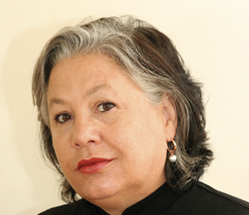
Mel is the owner and Director of Siggins Miller Consultants as well as holding Adjunct Professor positions at The University of Queensland and Griffith University where she supervises postgraduate students. She began her working life in clinical settings but moved on to policy research and evaluation in the public sector and then later into CEO-level positions in running hospital and health service systems. In these senior executive service positions, she was involved in system-level change management, with an emphasis on building collaborative cultures across all levels of the health and human services system, and between them and the communities they serve.
Over the past 20 years she has led multidisciplinary teams on evaluation research, system and organisational development and review, strategy development for organisations, and nationally for government.
What is the main characteristic that you believe all leaders should possess and why?
I think it is generosity. In an organisational context, the job of the leader is to steward the organisation’s resources in stakeholder or shareholder interests. In public sector and private sector roles, my business partner and I have always tried to stick to a principle of ‘doing good to do well’. Being deeply concerned for the health and wellbeing of your workforce pays off literally and metaphorically. When I think about leadership, I am reminded of the research out of the UK which found when you move away from the leadership research that was largely done on male corporate America (which resulted in the charismatic-hero-leader stereotype), and look at studies done with more gender-balanced samples in industries like healthcare, the characteristic of the effective leader turns out to be ‘a deep concern for others’.
What other characteristics and attributes make a good leader?
The capacity to see and analyse complexity, and understand how complexly determined most things are. This is where being a scientist-practitioner becomes invaluable.
What do you see as some of the key decisions and opportunities that have helped you in your leadership roles?
Having a clear sense of purpose and values and sticking to them as much as humanly possible, and being mentored and supported by people to do so. The decision to leave the public sector when I felt it no longer allowed me to act in the public interest was the best thing I ever did. Now, running my own business and being in the business of influence or thought leadership rather than in the business of using positional power has also meant learning new ways of working and thinking in leadership roles.
What are some of the challenges that you have had to overcome in leadership positions?
Sticking to values even when it threatens one’s own livelihood. Dealing with the results of occasionally picking the wrong people for key jobs and dealing with people who mistake generosity for weakness can also be a challenging part of the role.
Did your psychology background help you in taking on leadership roles and if yes, how?
Immensely. Especially by having key mentors at the Master’s level. Bob Dick and John Dam were amazing teachers. They didn’t just teach about theory and evidence, but about values and demeanour, about the difference between power and influence, and about understanding systems and change at that level. Working and thinking at a system level is still the thing I find most interesting, whether I am running organisations or consulting for them. Learning how to think, about scientific method, and about how to be a scientist-practitioner in clinical or organisational settings is an amazing asset.
What do you see as the key differences between a good leader and a good manager?
I know the textbook sort of answer to this – but I think leadership happens in all jobs at all levels. The main difference in organisations is that the further up the ladder you go, the more responsibility you have for the livelihood, health and wellbeing of more people.
What advice would you give to psychologists taking on leadership positions?
Do it. Do it with your eyes open. Do it knowing the job is to steward the resources of the organisation in a way that lets others get on with their job in the most productive way and that keeps people healthy and engaged. The rewards can be great. The risks are high in the big, high-profile jobs, but if making a difference matters to you then go for it.